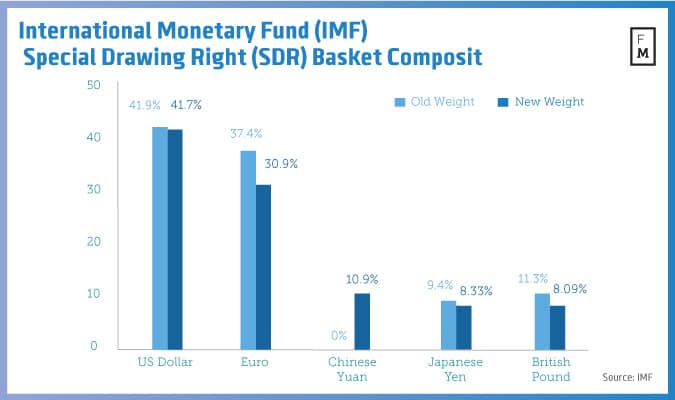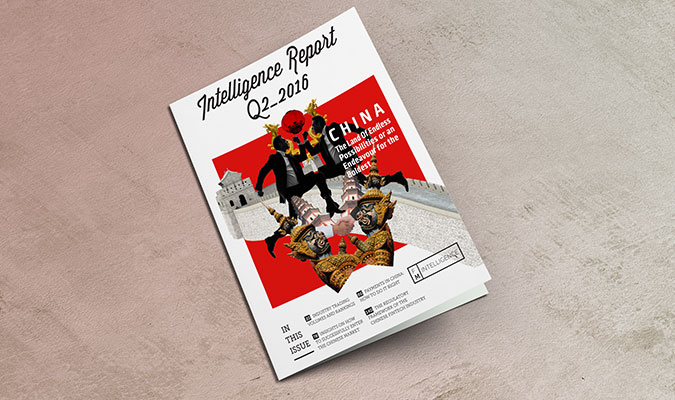Where the Prop Trading Industry Goes from Here | Finance Magnates Podcast
Where the Prop Trading Industry Goes from Here | Finance Magnates Podcast
Where the Prop Trading Industry Goes from Here | Finance Magnates Podcast
Where the Prop Trading Industry Goes from Here | Finance Magnates Podcast
Where the Prop Trading Industry Goes from Here | Finance Magnates Podcast
Where the Prop Trading Industry Goes from Here | Finance Magnates Podcast
Explore the tumultuous world of prop trading in this Finance Magnates podcast episode, featuring insights from Head of Axi Select, Greg Rubin.
We're discussing the challenges and shifts caused by MetaQuotes' pivotal decisions affecting MT4 and MT5 users, and how Axi Select offers a unique, realistic path to professional trading, steering clear of traditional prop firm pitfalls.
Tune in for expert analysis on the future of trading and innovative funding models.
The Axi Select programme is only available to clients of AxiTrader Limited. CFDs carry a high risk of investment loss. In our dealings with you, we will act as a principal counterparty to all of your positions. This content is not available for AU, NZ, EU and UK residents. For more information, refer to our Terms of Service. Standard trading fees apply.
This content is provided solely for general informational purposes and should not be construed as financial product advice or an investment recommendation. It has been prepared without considering your personal circumstances.
📣 Stay updated with the latest in finance and trading!
Follow Finance Magnates for news, insights, and event updates across our social media platforms. Connect with us today:
🔗 LinkedIn: https://www.linkedin.com/company/financemagnates/
👍 Facebook: https://www.facebook.com/financemagnates/
📸 Instagram: https://www.instagram.com/financemagnates_official
🐦 X (Twitter): https://twitter.com/financemagnates/
📡 RSS Feed: https://www.financemagnates.com/feed/
▶️ Telegram: https://t.me/financemagnatesnews
Don't miss out on our latest videos, interviews, and event coverage.
🔔 Subscribe to our YouTube channel for more!🔔
Explore the tumultuous world of prop trading in this Finance Magnates podcast episode, featuring insights from Head of Axi Select, Greg Rubin.
We're discussing the challenges and shifts caused by MetaQuotes' pivotal decisions affecting MT4 and MT5 users, and how Axi Select offers a unique, realistic path to professional trading, steering clear of traditional prop firm pitfalls.
Tune in for expert analysis on the future of trading and innovative funding models.
The Axi Select programme is only available to clients of AxiTrader Limited. CFDs carry a high risk of investment loss. In our dealings with you, we will act as a principal counterparty to all of your positions. This content is not available for AU, NZ, EU and UK residents. For more information, refer to our Terms of Service. Standard trading fees apply.
This content is provided solely for general informational purposes and should not be construed as financial product advice or an investment recommendation. It has been prepared without considering your personal circumstances.
📣 Stay updated with the latest in finance and trading!
Follow Finance Magnates for news, insights, and event updates across our social media platforms. Connect with us today:
🔗 LinkedIn: https://www.linkedin.com/company/financemagnates/
👍 Facebook: https://www.facebook.com/financemagnates/
📸 Instagram: https://www.instagram.com/financemagnates_official
🐦 X (Twitter): https://twitter.com/financemagnates/
📡 RSS Feed: https://www.financemagnates.com/feed/
▶️ Telegram: https://t.me/financemagnatesnews
Don't miss out on our latest videos, interviews, and event coverage.
🔔 Subscribe to our YouTube channel for more!🔔
Explore the tumultuous world of prop trading in this Finance Magnates podcast episode, featuring insights from Head of Axi Select, Greg Rubin.
We're discussing the challenges and shifts caused by MetaQuotes' pivotal decisions affecting MT4 and MT5 users, and how Axi Select offers a unique, realistic path to professional trading, steering clear of traditional prop firm pitfalls.
Tune in for expert analysis on the future of trading and innovative funding models.
The Axi Select programme is only available to clients of AxiTrader Limited. CFDs carry a high risk of investment loss. In our dealings with you, we will act as a principal counterparty to all of your positions. This content is not available for AU, NZ, EU and UK residents. For more information, refer to our Terms of Service. Standard trading fees apply.
This content is provided solely for general informational purposes and should not be construed as financial product advice or an investment recommendation. It has been prepared without considering your personal circumstances.
📣 Stay updated with the latest in finance and trading!
Follow Finance Magnates for news, insights, and event updates across our social media platforms. Connect with us today:
🔗 LinkedIn: https://www.linkedin.com/company/financemagnates/
👍 Facebook: https://www.facebook.com/financemagnates/
📸 Instagram: https://www.instagram.com/financemagnates_official
🐦 X (Twitter): https://twitter.com/financemagnates/
📡 RSS Feed: https://www.financemagnates.com/feed/
▶️ Telegram: https://t.me/financemagnatesnews
Don't miss out on our latest videos, interviews, and event coverage.
🔔 Subscribe to our YouTube channel for more!🔔
Explore the tumultuous world of prop trading in this Finance Magnates podcast episode, featuring insights from Head of Axi Select, Greg Rubin.
We're discussing the challenges and shifts caused by MetaQuotes' pivotal decisions affecting MT4 and MT5 users, and how Axi Select offers a unique, realistic path to professional trading, steering clear of traditional prop firm pitfalls.
Tune in for expert analysis on the future of trading and innovative funding models.
The Axi Select programme is only available to clients of AxiTrader Limited. CFDs carry a high risk of investment loss. In our dealings with you, we will act as a principal counterparty to all of your positions. This content is not available for AU, NZ, EU and UK residents. For more information, refer to our Terms of Service. Standard trading fees apply.
This content is provided solely for general informational purposes and should not be construed as financial product advice or an investment recommendation. It has been prepared without considering your personal circumstances.
📣 Stay updated with the latest in finance and trading!
Follow Finance Magnates for news, insights, and event updates across our social media platforms. Connect with us today:
🔗 LinkedIn: https://www.linkedin.com/company/financemagnates/
👍 Facebook: https://www.facebook.com/financemagnates/
📸 Instagram: https://www.instagram.com/financemagnates_official
🐦 X (Twitter): https://twitter.com/financemagnates/
📡 RSS Feed: https://www.financemagnates.com/feed/
▶️ Telegram: https://t.me/financemagnatesnews
Don't miss out on our latest videos, interviews, and event coverage.
🔔 Subscribe to our YouTube channel for more!🔔
Explore the tumultuous world of prop trading in this Finance Magnates podcast episode, featuring insights from Head of Axi Select, Greg Rubin.
We're discussing the challenges and shifts caused by MetaQuotes' pivotal decisions affecting MT4 and MT5 users, and how Axi Select offers a unique, realistic path to professional trading, steering clear of traditional prop firm pitfalls.
Tune in for expert analysis on the future of trading and innovative funding models.
The Axi Select programme is only available to clients of AxiTrader Limited. CFDs carry a high risk of investment loss. In our dealings with you, we will act as a principal counterparty to all of your positions. This content is not available for AU, NZ, EU and UK residents. For more information, refer to our Terms of Service. Standard trading fees apply.
This content is provided solely for general informational purposes and should not be construed as financial product advice or an investment recommendation. It has been prepared without considering your personal circumstances.
📣 Stay updated with the latest in finance and trading!
Follow Finance Magnates for news, insights, and event updates across our social media platforms. Connect with us today:
🔗 LinkedIn: https://www.linkedin.com/company/financemagnates/
👍 Facebook: https://www.facebook.com/financemagnates/
📸 Instagram: https://www.instagram.com/financemagnates_official
🐦 X (Twitter): https://twitter.com/financemagnates/
📡 RSS Feed: https://www.financemagnates.com/feed/
▶️ Telegram: https://t.me/financemagnatesnews
Don't miss out on our latest videos, interviews, and event coverage.
🔔 Subscribe to our YouTube channel for more!🔔
Explore the tumultuous world of prop trading in this Finance Magnates podcast episode, featuring insights from Head of Axi Select, Greg Rubin.
We're discussing the challenges and shifts caused by MetaQuotes' pivotal decisions affecting MT4 and MT5 users, and how Axi Select offers a unique, realistic path to professional trading, steering clear of traditional prop firm pitfalls.
Tune in for expert analysis on the future of trading and innovative funding models.
The Axi Select programme is only available to clients of AxiTrader Limited. CFDs carry a high risk of investment loss. In our dealings with you, we will act as a principal counterparty to all of your positions. This content is not available for AU, NZ, EU and UK residents. For more information, refer to our Terms of Service. Standard trading fees apply.
This content is provided solely for general informational purposes and should not be construed as financial product advice or an investment recommendation. It has been prepared without considering your personal circumstances.
📣 Stay updated with the latest in finance and trading!
Follow Finance Magnates for news, insights, and event updates across our social media platforms. Connect with us today:
🔗 LinkedIn: https://www.linkedin.com/company/financemagnates/
👍 Facebook: https://www.facebook.com/financemagnates/
📸 Instagram: https://www.instagram.com/financemagnates_official
🐦 X (Twitter): https://twitter.com/financemagnates/
📡 RSS Feed: https://www.financemagnates.com/feed/
▶️ Telegram: https://t.me/financemagnatesnews
Don't miss out on our latest videos, interviews, and event coverage.
🔔 Subscribe to our YouTube channel for more!🔔























